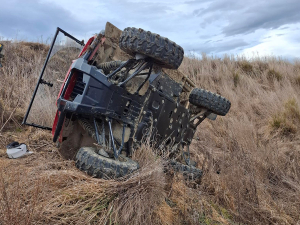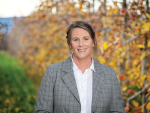Now is the time for you to set yourself up for a career in horticulture, explains Peter Kemp, Head of the Institute of Agriculture and Environment at Massey University.
The popular media focus on fruit picker shortages, but the future of the horticulture industry rests on more people with science, management and technical qualifications. The sector’s future is with the innovators and entrepreneurs that drive New Zealand horticulture to be a world leader. People who will solve the need for fruit pickers with robotics and artificial intelligence. People who will ensure we continue to grow the best quality fruit and vegetables, and who know how to package, store, transport and market fruit and vegetables to the world.
There is such a shortage of qualified people in the booming horticultural industry that Horticulture NZ has a team of liaison officers encouraging students and others to study for qualifications the industry desperately needs. That a booming industry producing wholesome food can’t find sufficient employees in New Zealand beggars belief.
There is a job at every level you aspire to in horticulture. The jobs are well paid, and the major horticultural regions have great weather and towns and cities. And the continuing Covid-19 crisis reminds us all of the sustainability of careers in the food producing industries.
So seize the opportunity to do a horticultural science degree, or some other qualification that will take your career into the future. Once you have learnt about how quality fruit and vegetables are produced, stored and marketed you can get involved in jobs like managing staff on orchards, providing technical and science advice on how to optimise fruit or vegetable production, or become a producer yourself.
Then there are all the jobs along the chain such as running packing sheds and marketing. The industry is full of people happy to talk to you about what they do and help you get a start, just give them a call or start by going to https://gohorticulture.co.nz/ and watch videos of people talking about their jobs and how they got into them.
• Professor Peter Kemp is the Head of Institute of Agriculture and Environment, Massey University.











